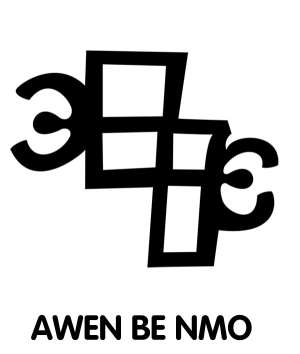
Introduction
E. A. Ammah, “Ghanaian Philosophy,” The Ghanaian (October 1961, November 1961, December 1961, January 1962, February 1962, March 1962, April/May 1962, June 1962)
NOTE: Beginning in the October 1961 issue of The Ghanaian and continuing in monthly installments through June 1962, E. A. Ammah published a lengthy essay, “Ghanaian Philosophy.” The essay is remarkable not only for its analysis of Ghanaian thought but for its comparative discussion of other religious traditions throughout the world. Although E. A. Ammah titles his essay “Ghanaian Philosophy,” his exposition is an exploration of Ga philosophy as revealed primarily in kpele hymns. He identifies and discusses three Ga schools of thought: (1) God's School of Thought, (2) the Son of God (Awi Tete) or the Wisdom School, and (3) the Sceptic School of Thought. In comparing Ga thought with other traditions, E. A. Ammah draws upon a variety of sources including The Bible, articles in The Hibbert Journal (a liberal Christian periodical published in Britain 1902-1968), notable scholarly monographs of the 1920s and 1930s, various encyclopedias, as well as Islamic, Indian, and Buddhist teachings. Marion Kilson
The essay is reproduced on this blog in 4 parts – Ade Sawyerr
Ghanaian thought
Why go to ancient Greece,
And other far off lands,
In search of golden fleece,
'Tis here, these Ghana stands.
October 1, 1961, the date on which the University of Accra was born, marked a great turning point in the intellectual and cultural history of Ghana and also of Africa as a whole—a renaissance or revival of knowledge.
To borrow the words of Henri Bergson, “it is the customs, institutions, even in language, that the intellectual and cultural acquisitions are deposited; they are then transmitted by unceasing education from generation to generation, from mouth to mouth.” It is by this way that Ghana was able to build up its cultural heritage of which we are very proud. An aspect of our intellectual culture is philosophy or “notion of the universe,” nature, man, and God.
Three in One
Ghanaian thought unlike Greek, but like Hindus, is three in one, and one in three, namely, philosophy, religion and science. It must be remarked in passing that Indian “religion and philosophy are one”, and that, “For India, then, there can be no real conflict between science and religion, between religion and thought” (J. H. Tuckwell, Indian philosophy, an appreciation. Hibbert Journal, October, p. 10). This is exactly the content of Ghanaian thought; the sole difference is that, India stresses pantheism, while Ghana upholds theism, God's transcendence or revelation.
These pages discuss what Ghanaian philosophy is about. But to start, it is deemed important to know the present situation as to the place of philosophy in the West. We are told that, “there is no agreement among philosophers, and no one who can speak with authority on its behalf,” that something should be “done to galvanise philosophy into some sort of meaningful activity and to bring it into relation with the problem of life,” then professional expounders of philosophy…may see it would [be] to the advantage alike to themselves and of the world to make philosophy socially useful.” Having examined the role of science, Dr. Schiller says, there is “the need for something more than science, namely for a comprehensive or synoptic treatment that will combine the partial views of the various sciences and will instruct us how to think of reality as a whole, and how we can read a single coherent sense into the whole of our experience.” Showing the relevant sphere of philosophy, the learned Doctor writes, “here then is an important task, an indisputable domain, to which philosophy might devote itself. It has always claimed to be concerned with the whole” (see Has Philosophy a Message, Hibbert Journal, July 1938, pp.595 and 597). This is exactly the concrete and coherent “message” Ghanaian thought is to deliver “to a world wearied of constant change” (Percy Dearmer, Christianity and the Crisis, 1933, p. 65).
The time is opportune that Ghana should speak for herself and also for Africa as a whole.




 "I can now see clearly with my two eyes, thanks to the generosity of Afenyo-Mark...
"I can now see clearly with my two eyes, thanks to the generosity of Afenyo-Mark...
 Election 2024: Power outages will affect NPP – Political scientist
Election 2024: Power outages will affect NPP – Political scientist
 NPP is 'a laughing stock' for luring 'poster-stickers', 'noisemaking babies' wit...
NPP is 'a laughing stock' for luring 'poster-stickers', 'noisemaking babies' wit...
 Dumsor: Matthew Opoku Prempeh must be removed over power crisis – IES
Dumsor: Matthew Opoku Prempeh must be removed over power crisis – IES
 PAC orders WA East DCE to process requests from their MP
PAC orders WA East DCE to process requests from their MP
 Defectors who ditched Alan’s Movement to rejoin NPP were financially induced – A...
Defectors who ditched Alan’s Movement to rejoin NPP were financially induced – A...
 Dumsor: Akufo-Addo has taken Ghanaians for granted, let’s organise a vigil – Yvo...
Dumsor: Akufo-Addo has taken Ghanaians for granted, let’s organise a vigil – Yvo...
 April 23: Cedi sells at GHS13.66 to $1, GHS13.07 on BoG interbank
April 23: Cedi sells at GHS13.66 to $1, GHS13.07 on BoG interbank
 GRA clarifies tax status of resident individuals earning income abroad
GRA clarifies tax status of resident individuals earning income abroad
 2024 elections: NDC to officially unveil Jane Opoku-Agyemang as running mate tom...
2024 elections: NDC to officially unveil Jane Opoku-Agyemang as running mate tom...
